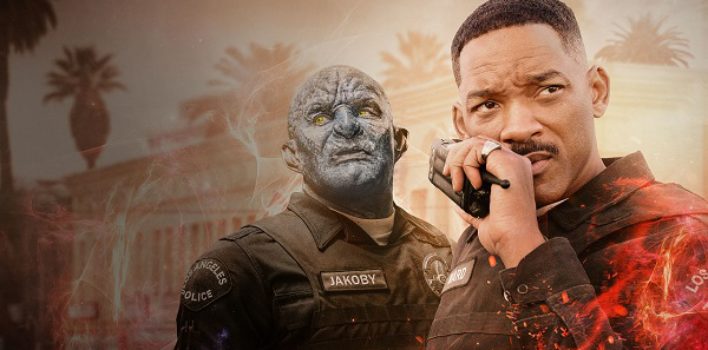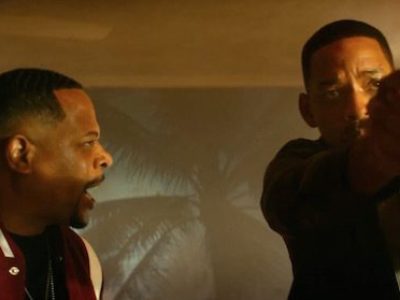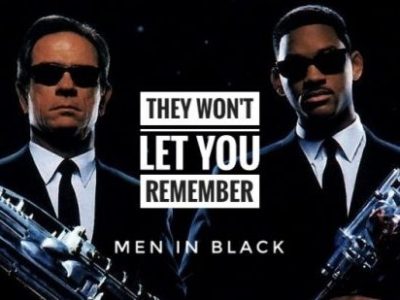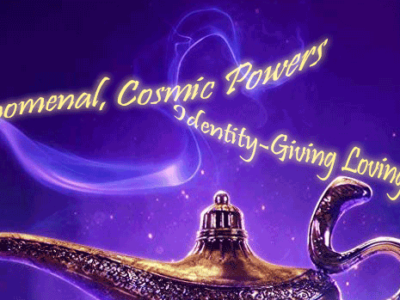Review| Bright
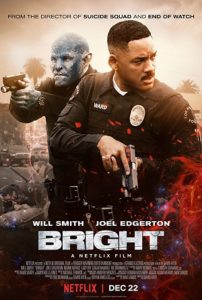 In a little under 20 years, Netflix has finally entered the realm of distributing original blockbuster films with their first title, Bright. With stars like Will Smith, Joel Edgerton, and Noomi Rapace (who also starred in the original 2017 Netflix thriller What Happened to Monday?) and writer Max Landis at the creative helm, Bright is bound to be a film that folks will want to check out, just from its trailer alone. Landis has skill with meshing different film genres, and has proven his ability to do so with 2012’s Chronicle – a contemporary superhero-fantasy-gone-wrong drama filmed entirely with found footage camera work. With Bright, Landis has meshed buddy-cop dramedy with high-fantasy elements such as elves, orcs, magic, and yes, prophecies. David Ayer was brought on to bring this film to life via his directorial vision, and on December 22 2017, Netflix released Bright to its subscriber audience, the first of what will most likely be many blockbusters that the service will produce.
In a little under 20 years, Netflix has finally entered the realm of distributing original blockbuster films with their first title, Bright. With stars like Will Smith, Joel Edgerton, and Noomi Rapace (who also starred in the original 2017 Netflix thriller What Happened to Monday?) and writer Max Landis at the creative helm, Bright is bound to be a film that folks will want to check out, just from its trailer alone. Landis has skill with meshing different film genres, and has proven his ability to do so with 2012’s Chronicle – a contemporary superhero-fantasy-gone-wrong drama filmed entirely with found footage camera work. With Bright, Landis has meshed buddy-cop dramedy with high-fantasy elements such as elves, orcs, magic, and yes, prophecies. David Ayer was brought on to bring this film to life via his directorial vision, and on December 22 2017, Netflix released Bright to its subscriber audience, the first of what will most likely be many blockbusters that the service will produce.
Bright follows the story of Daryl Ward, a police officer, who struggles with partnering with Officer Nick Jakoby as they handle the various dangers of a cross-cultural and diverse Los Angeles. This isn’t your usual Los Angeles, however. This is Los Angeles reimagined as a mesh with Middle Earth elements. Elves live the high life; fairies need pest control to keep them contained, and orcs live ostracized from the community, seemingly contained in the underbelly of the city. Officer Jakoby is one of these orcs, and after growing up striving to be a police officer, he becomes the first orc to serve on the force – and a primary target because of it. Not only do orcs regard Jakoby as a traitor to his own race, but the police force wants him out as well, after mistrust regarding a previous incident with Ward and their general prejudice towards orcs precedes them. Their lives get flipped and turned upside down when they stumble across a magic wand that can only be used by “Brights” – magic users seemingly gifted from birth with the ability to wield such a weapon like the wand. (Bright describes the wand as a “nuclear weapon that grants wishes,” though it’s quite difficult if not impossible to conceive of a weapon of mass destruction that grants objectively good wishes to its user, but I digress.)
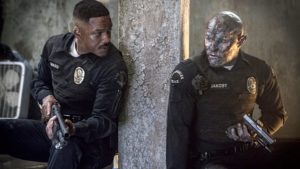 The chemistry between Ward and Jakoby develops how you would expect, especially after seeing many decades of buddy-cop films such as Lethal Weapon, Rush Hour, and more. Smith handles the role of Ward in his usual suave, wisecracking way, and Edgerton plays Jakoby as many other Edgerton characters – powerful, yet sympathetic. It’s unfortunate that the script doesn’t give Smith and Edgerton much to go off of, as their characters are stand-ins for the usual cop genre formula. With such an unusual addition to the genre thanks to its fantasy elements, Bright could have handled its unsubtle racial commentary much more creative than most, but when the main characters can’t seem to be developed, we probably shouldn’t expect the story to be all that evolved. Audiences shouldn’t expect any kind of explanation of the racial hierarchy in this world, either.
The chemistry between Ward and Jakoby develops how you would expect, especially after seeing many decades of buddy-cop films such as Lethal Weapon, Rush Hour, and more. Smith handles the role of Ward in his usual suave, wisecracking way, and Edgerton plays Jakoby as many other Edgerton characters – powerful, yet sympathetic. It’s unfortunate that the script doesn’t give Smith and Edgerton much to go off of, as their characters are stand-ins for the usual cop genre formula. With such an unusual addition to the genre thanks to its fantasy elements, Bright could have handled its unsubtle racial commentary much more creative than most, but when the main characters can’t seem to be developed, we probably shouldn’t expect the story to be all that evolved. Audiences shouldn’t expect any kind of explanation of the racial hierarchy in this world, either.
The fantasy elements are Bright’s blessing and curse. Orcs, elves, and more have been living with humans for quite a long time, and to witness the interactions between humans and these fantastical beings is intriguing. References are even made to conflicts that developed from an event that happened “2000 years ago,” which begs explanation to the question of these fantasy beings being affected by our very own Creator. What is their relationship to God? If humans of all races are made in the image of God and therefore deserve equality because of the kind of being they are, where do elves, orcs, fairies, and more of these races fit in? Unfortunately, both Landis and Ayer don’t seem too interested in following this thread or any others related to social commentary, and choose to instead bring on what one would expect after seeing Ayer’s previous film, Suicide Squad; loud, stylized violence, and lots of it. Because of these fantasy elements being mixed with our real-life places and people, I couldn’t help but think that a story like this could have been served better set in a fantasy world where humans are the ones ostracized and the orcs are the ones that call the shots. Keeping social structures familiar but instead set in a fantasy setting seemed to succeed with last year’s fantastical buddy-cop film Zootopia, but in the still-familiar world that Bright played in, this universe was simply muddled.
 In a world such as ours that craves originality in their stories yet longs to retain some kind of familiarity, Bright has a lot of potential in its concepts and world building. But with no apparent rules to retain its original concepts and too many cardboard stand-ins that are supposed to represent characters, Ayer’s film is not the light at the end of our repetitive cinematic tunnel. At its worst, it paints racial issues in a joking manner; at its best, it’s a shell of films that have come before it that utilize the same genres and discuss similar issues. Clocking in at just under two hours in length, Bright can serve as a one-time fling, but even as Netflix’s flagship blockbuster, it’s doubtful it could be remembered long past its release date.
In a world such as ours that craves originality in their stories yet longs to retain some kind of familiarity, Bright has a lot of potential in its concepts and world building. But with no apparent rules to retain its original concepts and too many cardboard stand-ins that are supposed to represent characters, Ayer’s film is not the light at the end of our repetitive cinematic tunnel. At its worst, it paints racial issues in a joking manner; at its best, it’s a shell of films that have come before it that utilize the same genres and discuss similar issues. Clocking in at just under two hours in length, Bright can serve as a one-time fling, but even as Netflix’s flagship blockbuster, it’s doubtful it could be remembered long past its release date.


